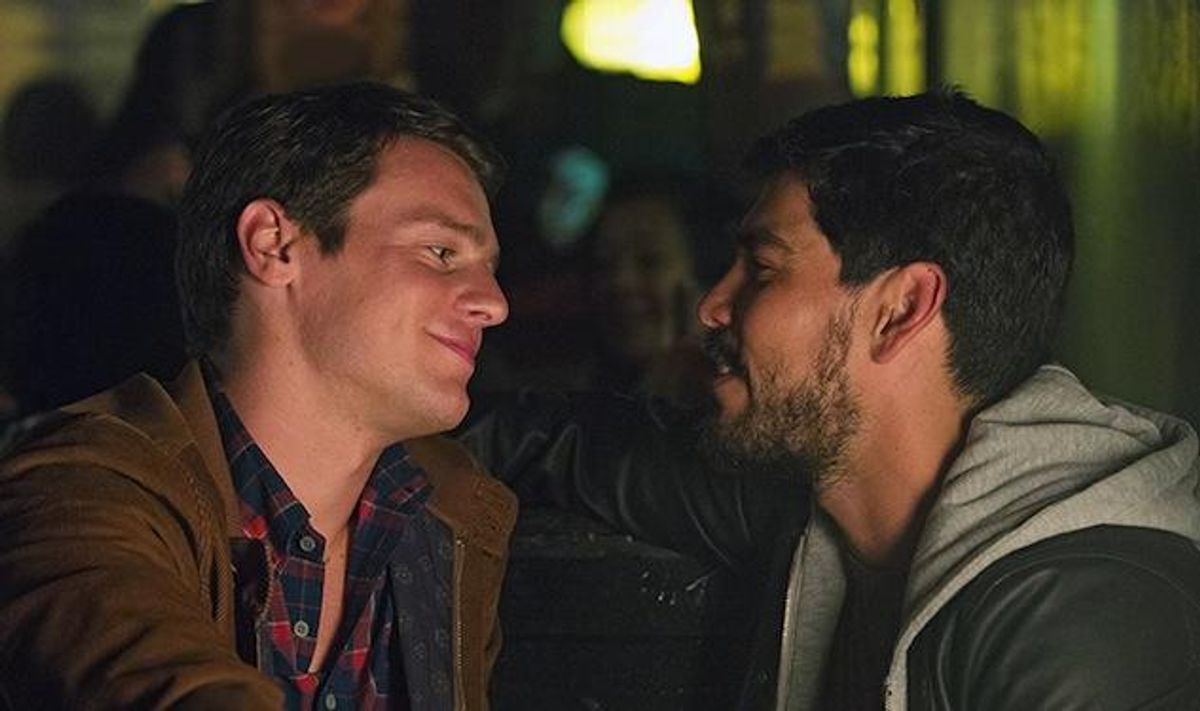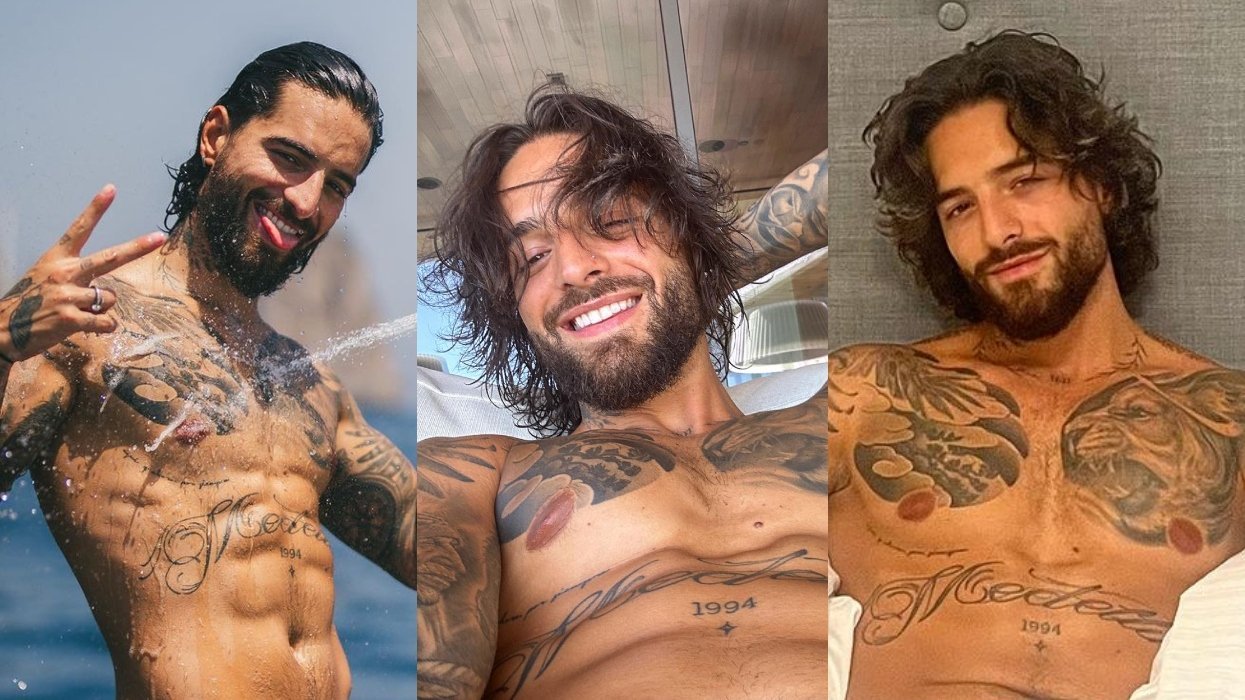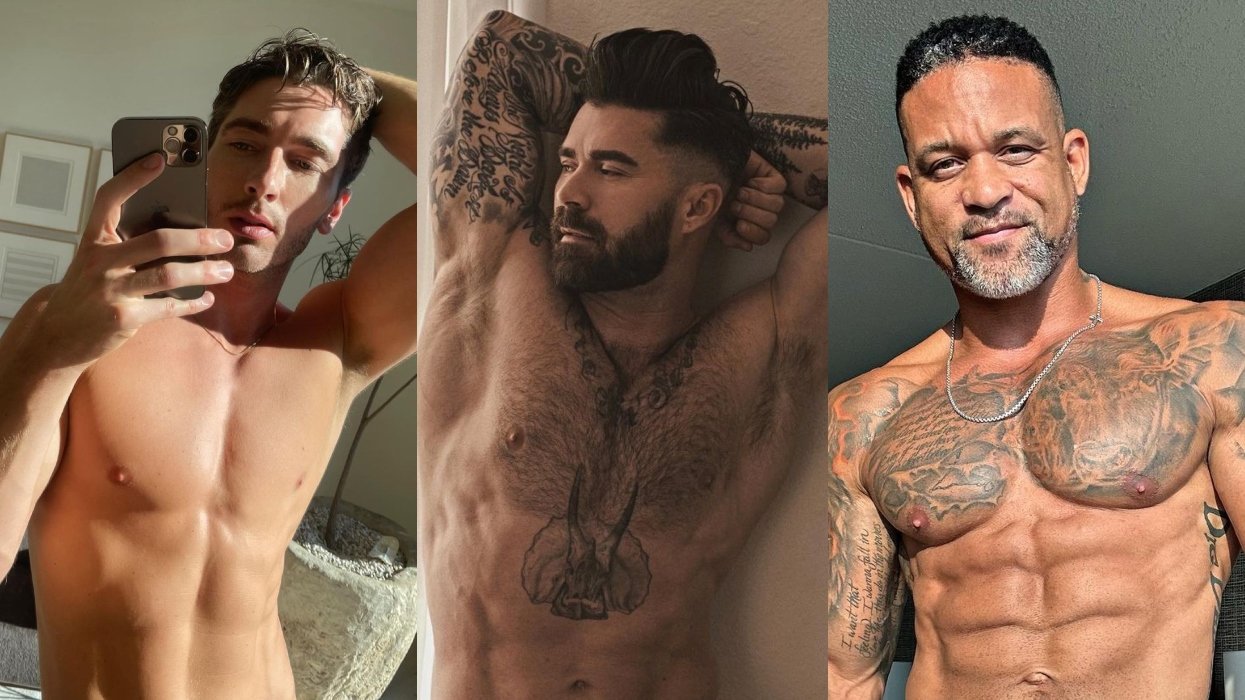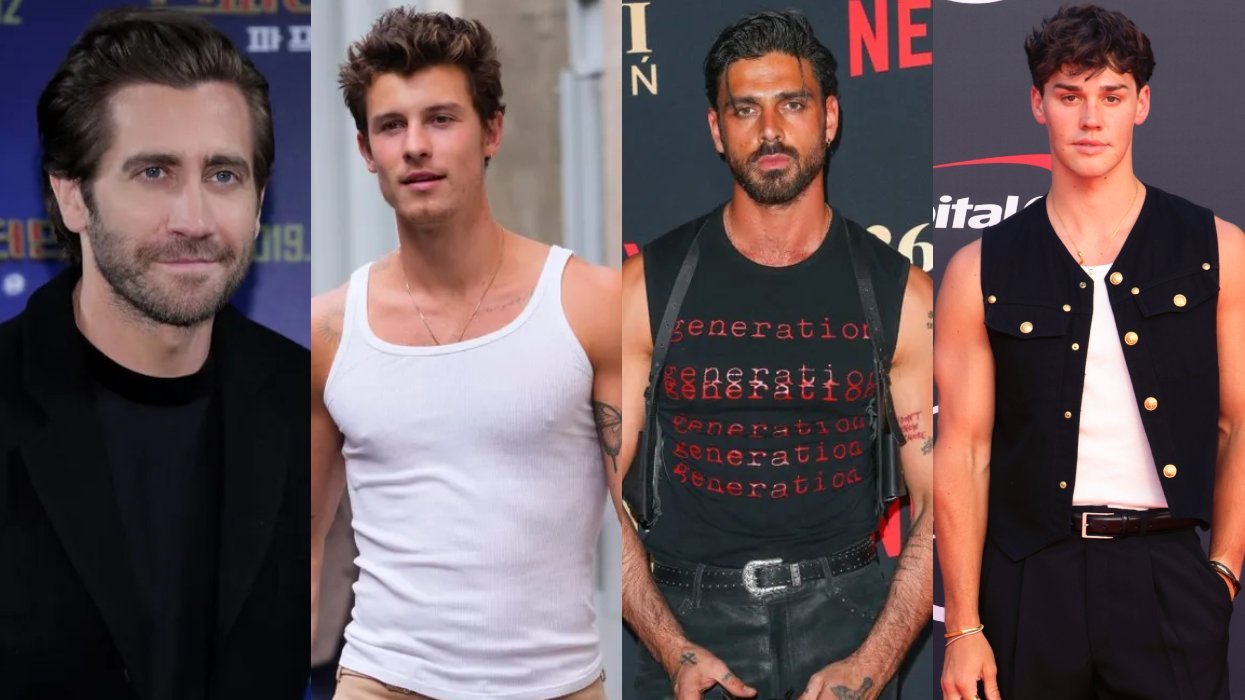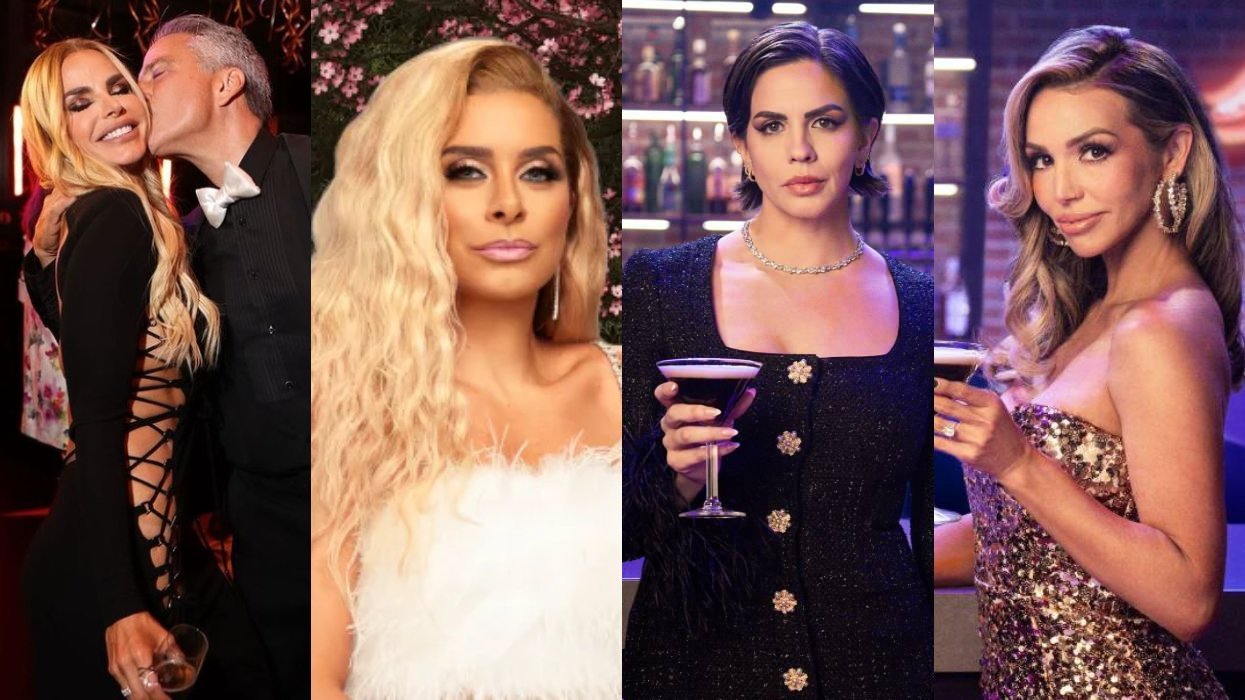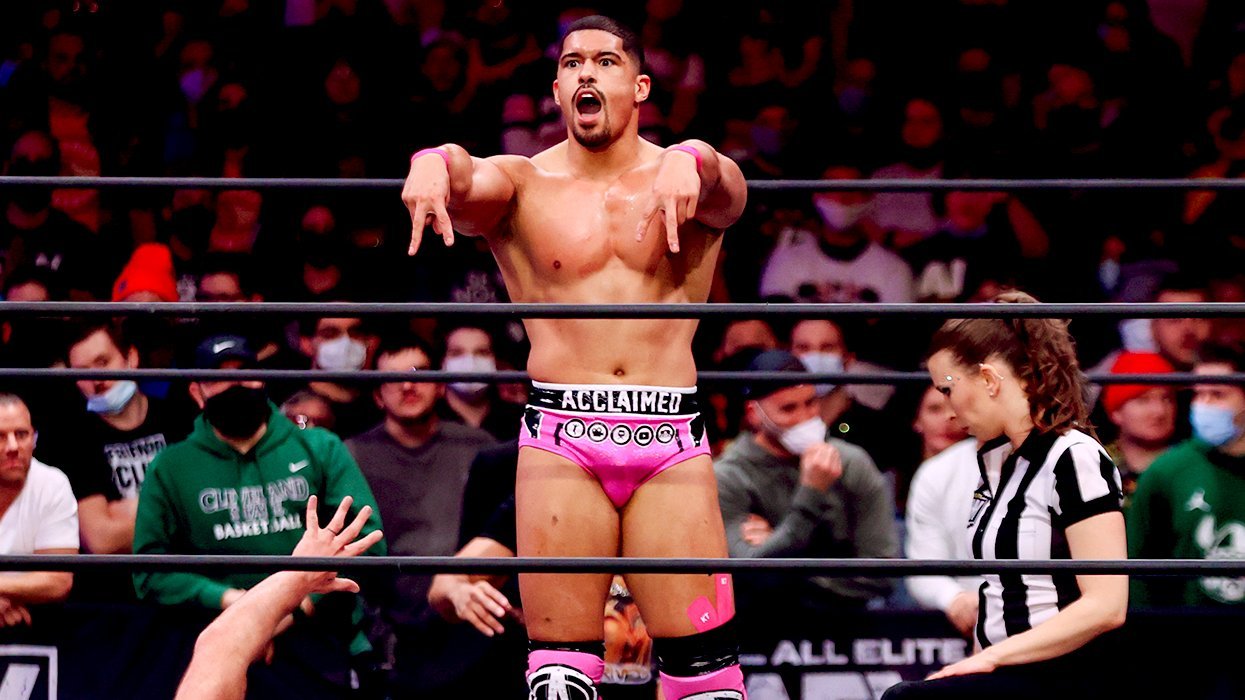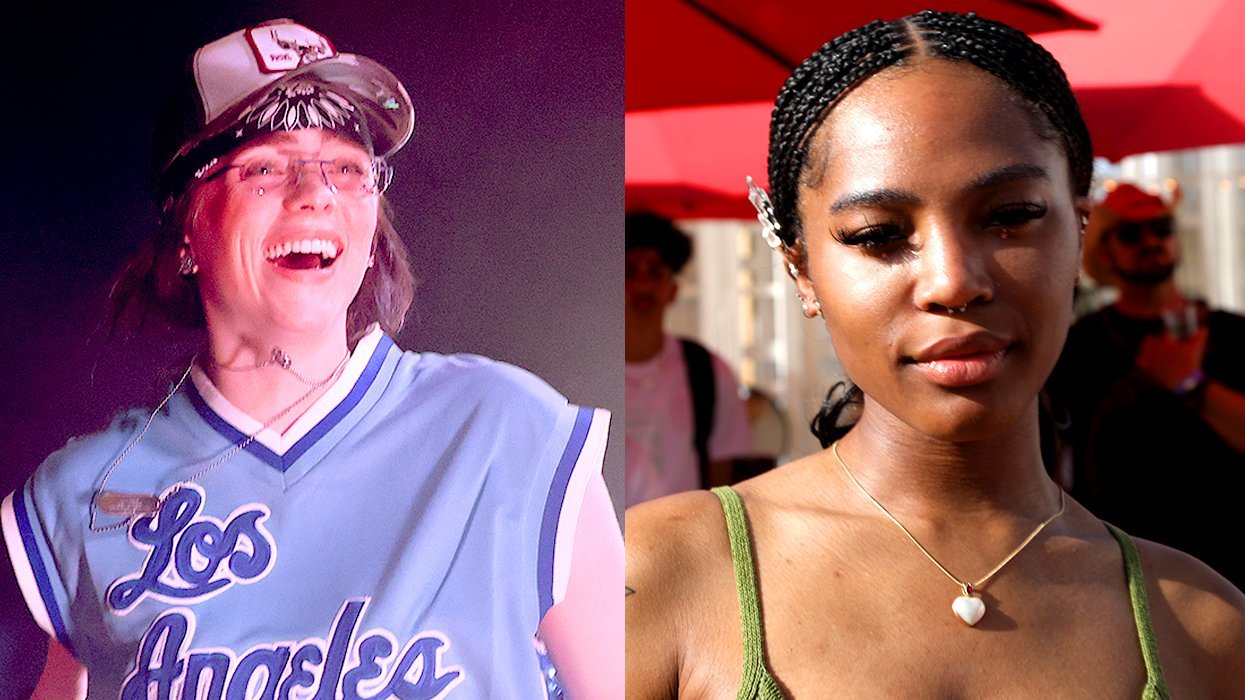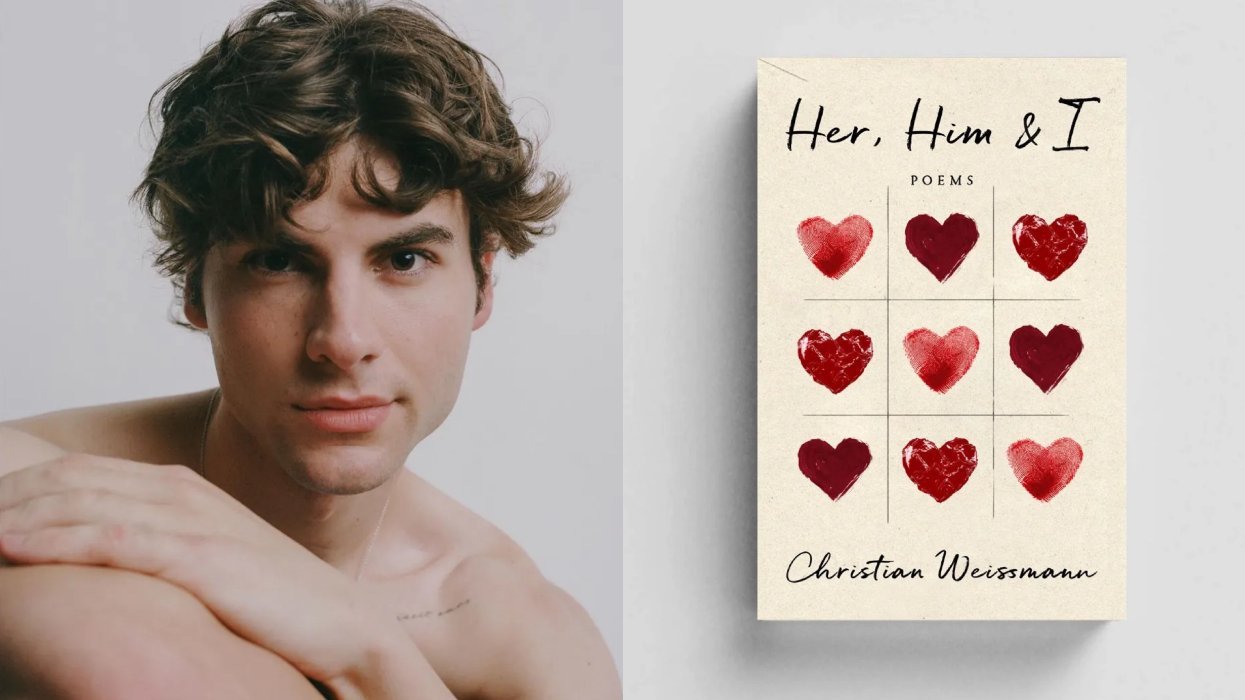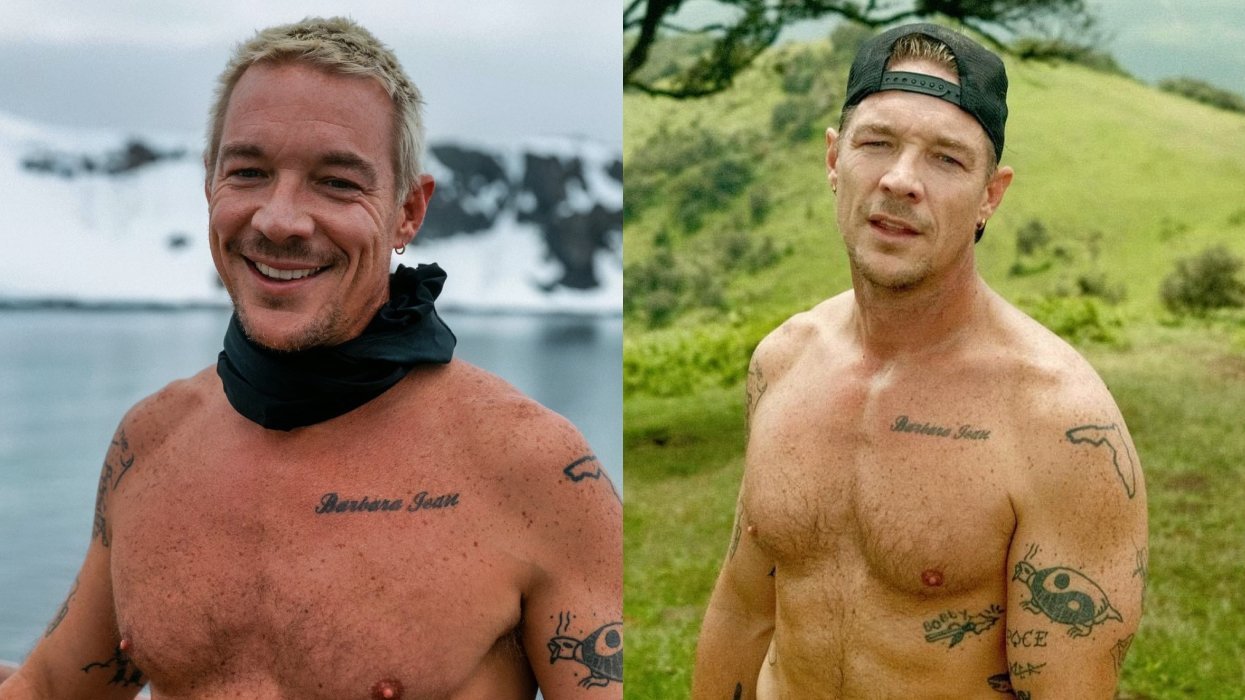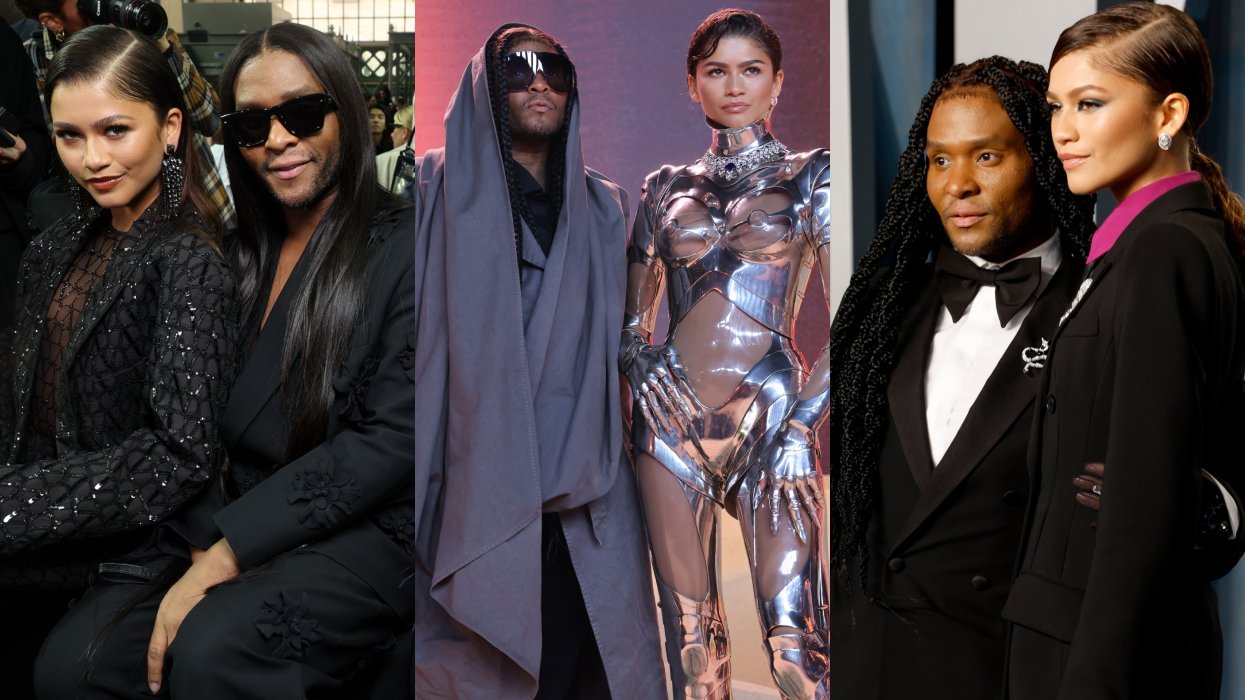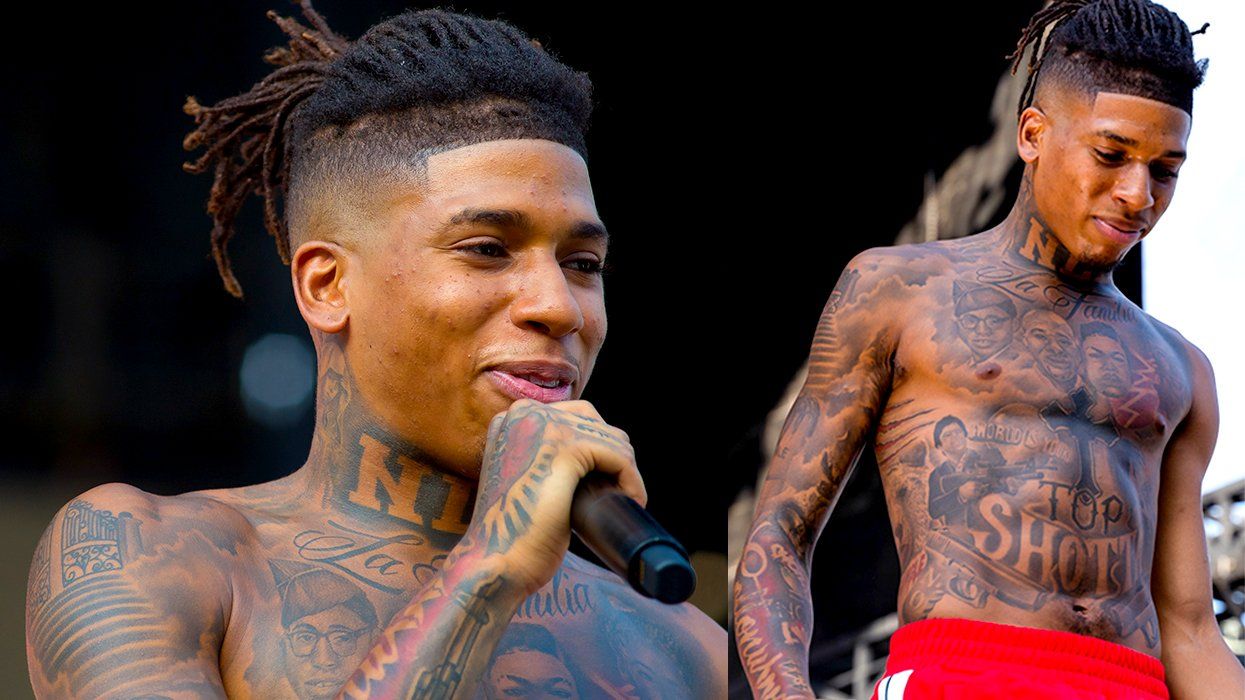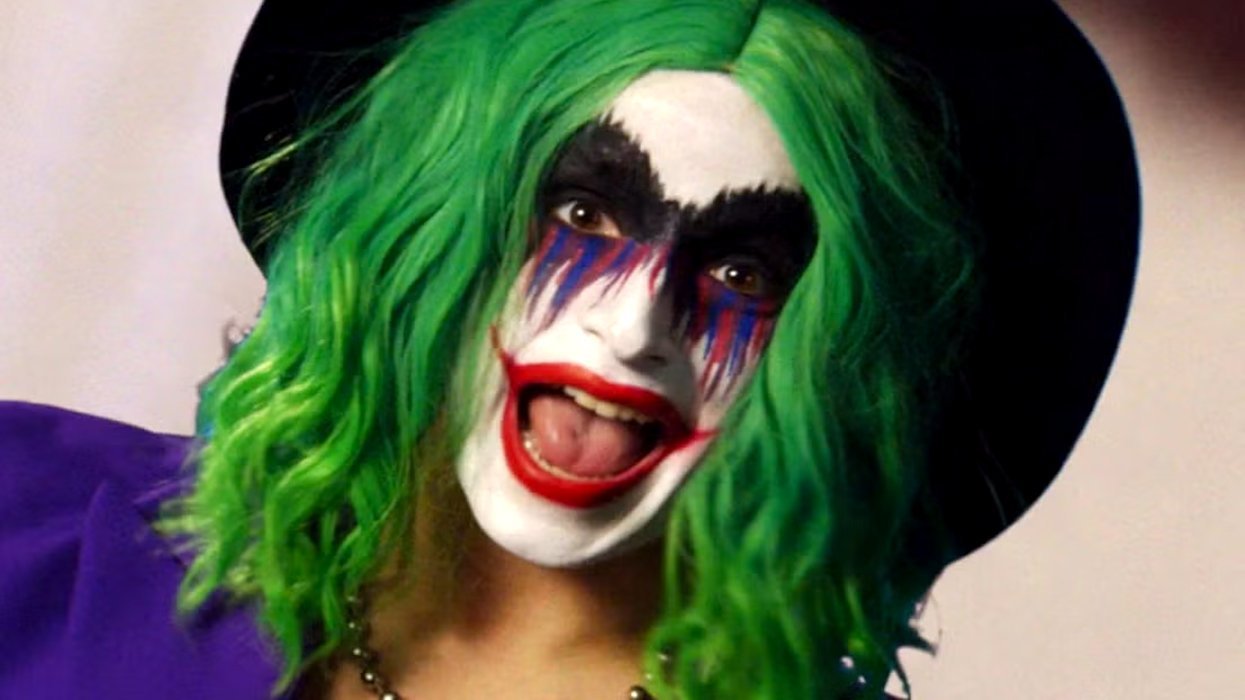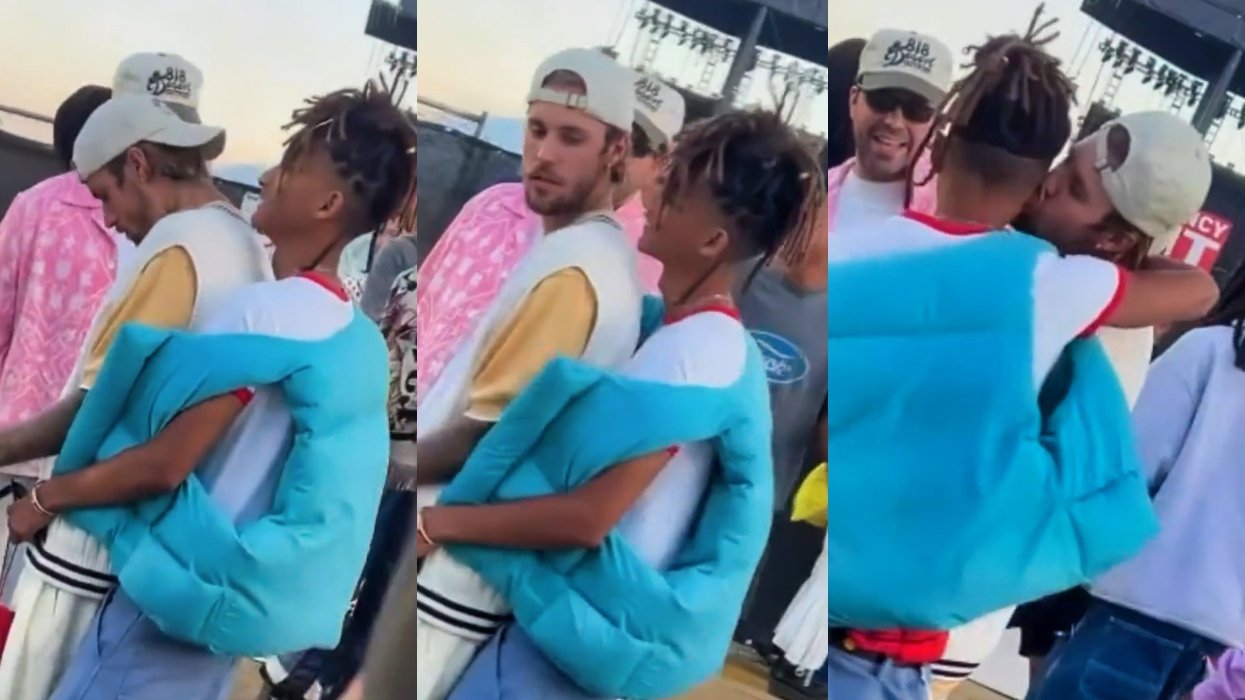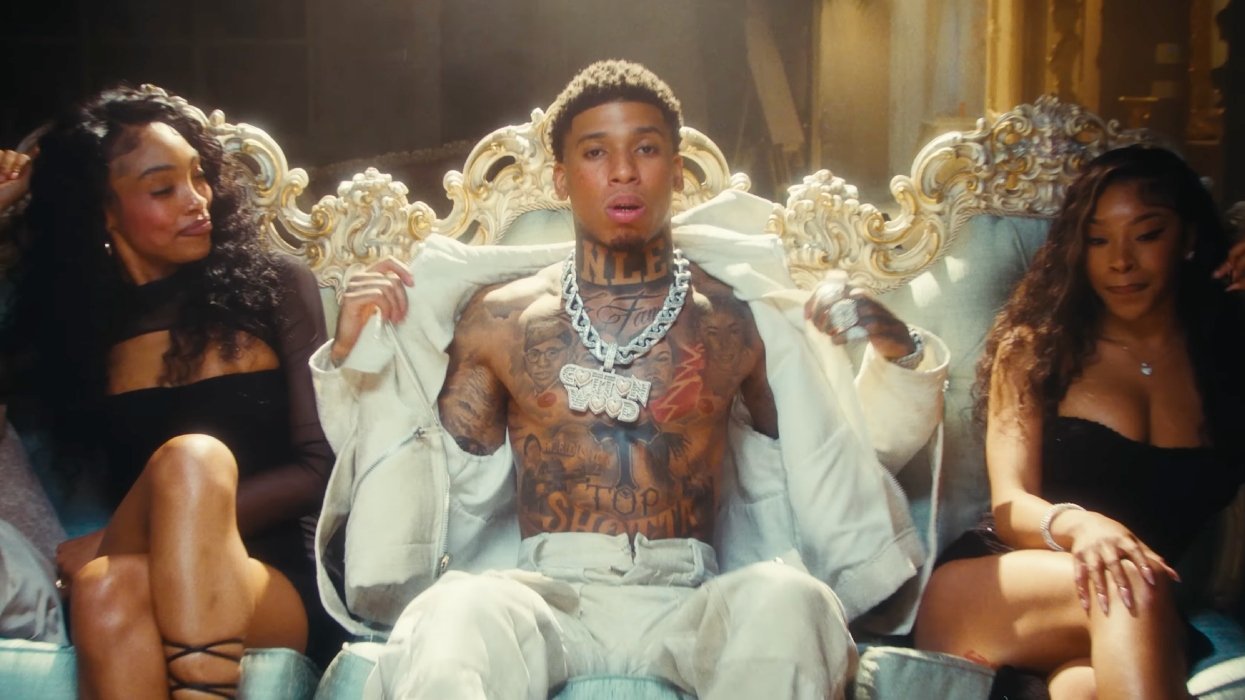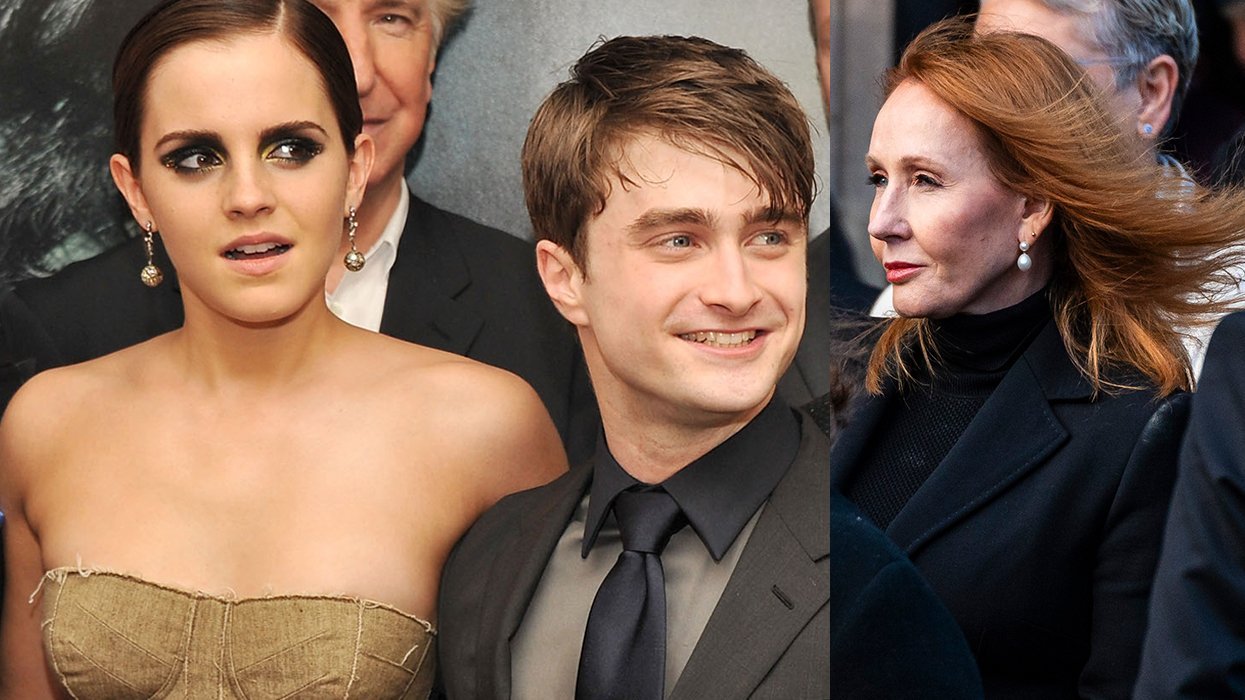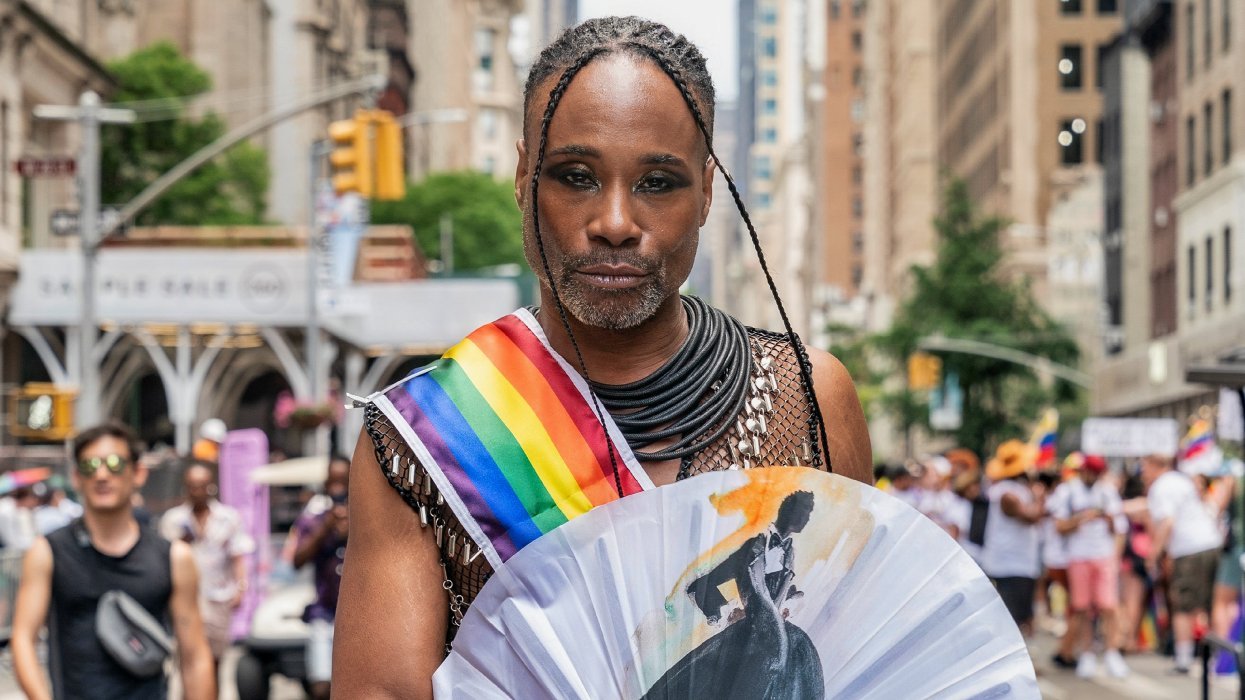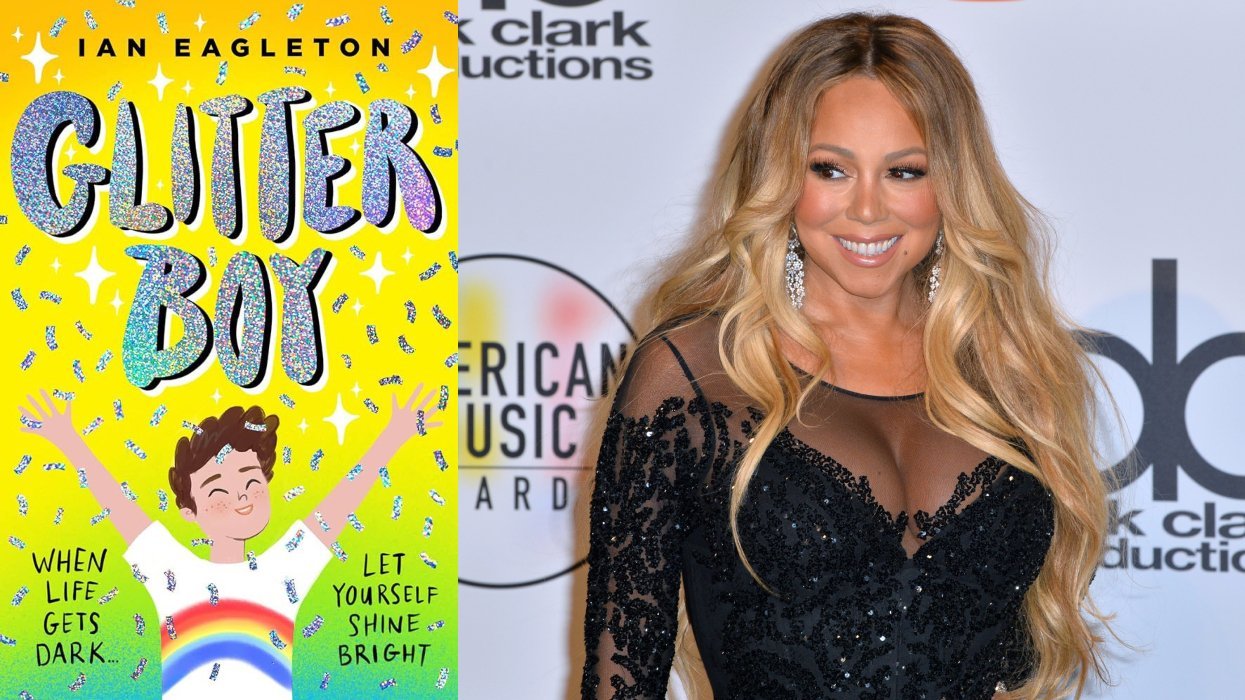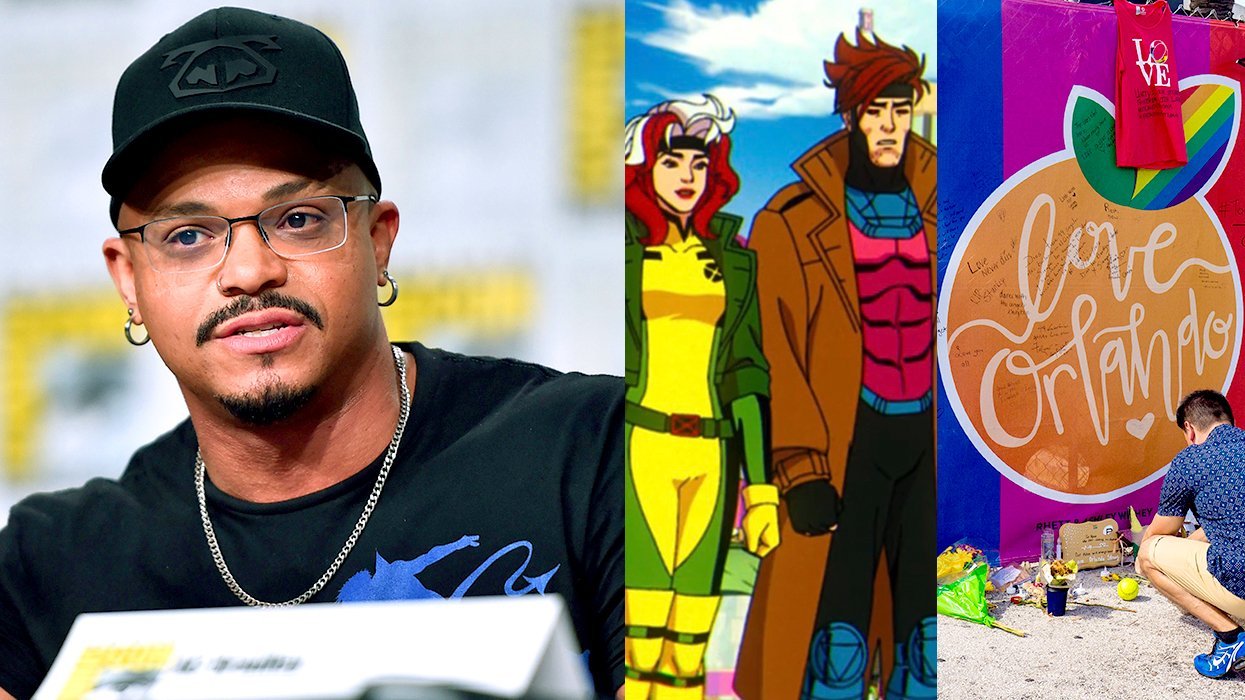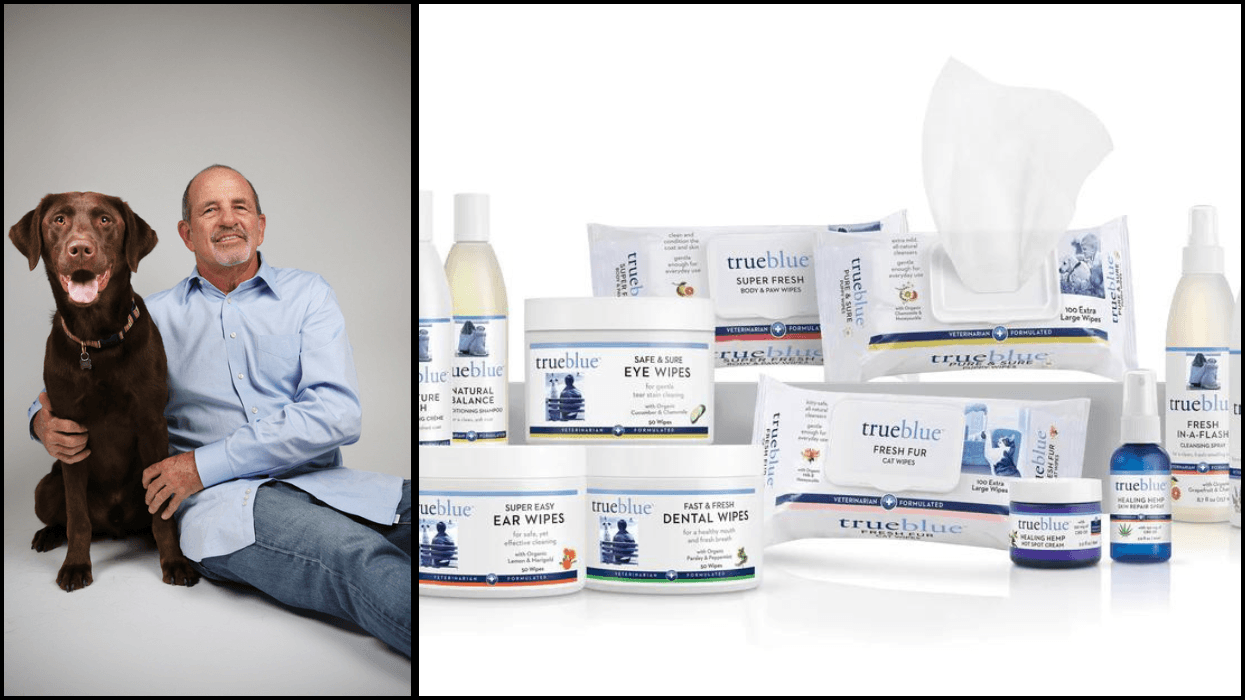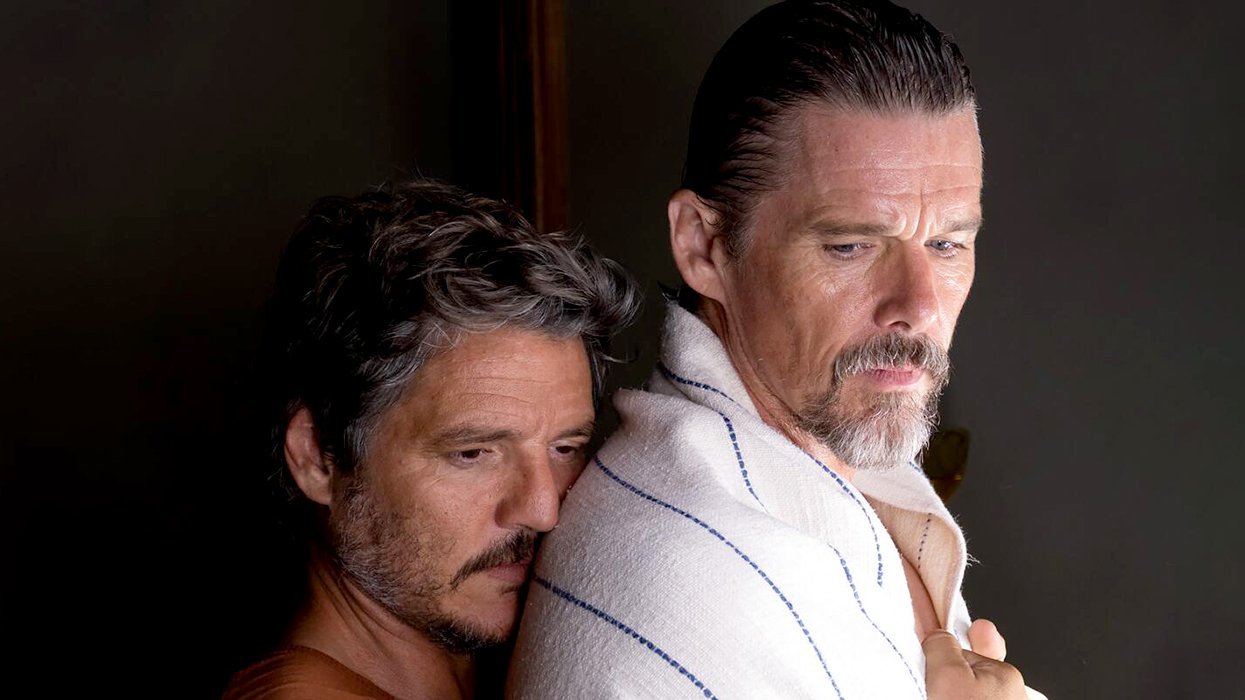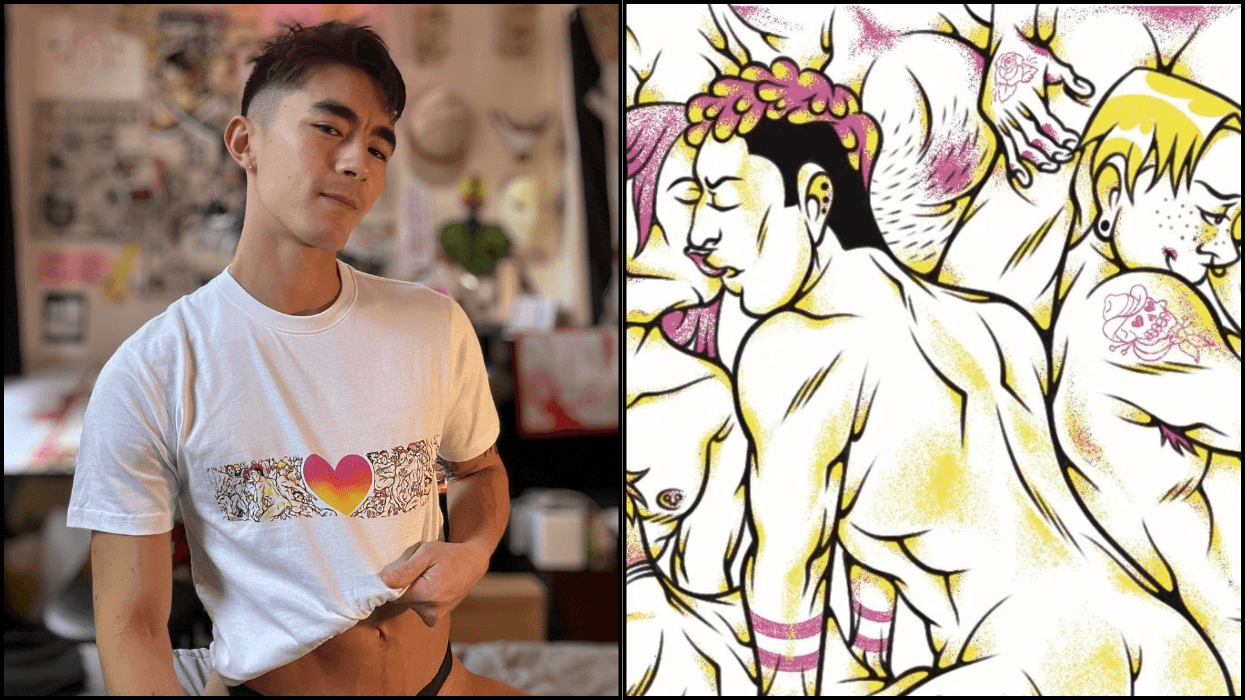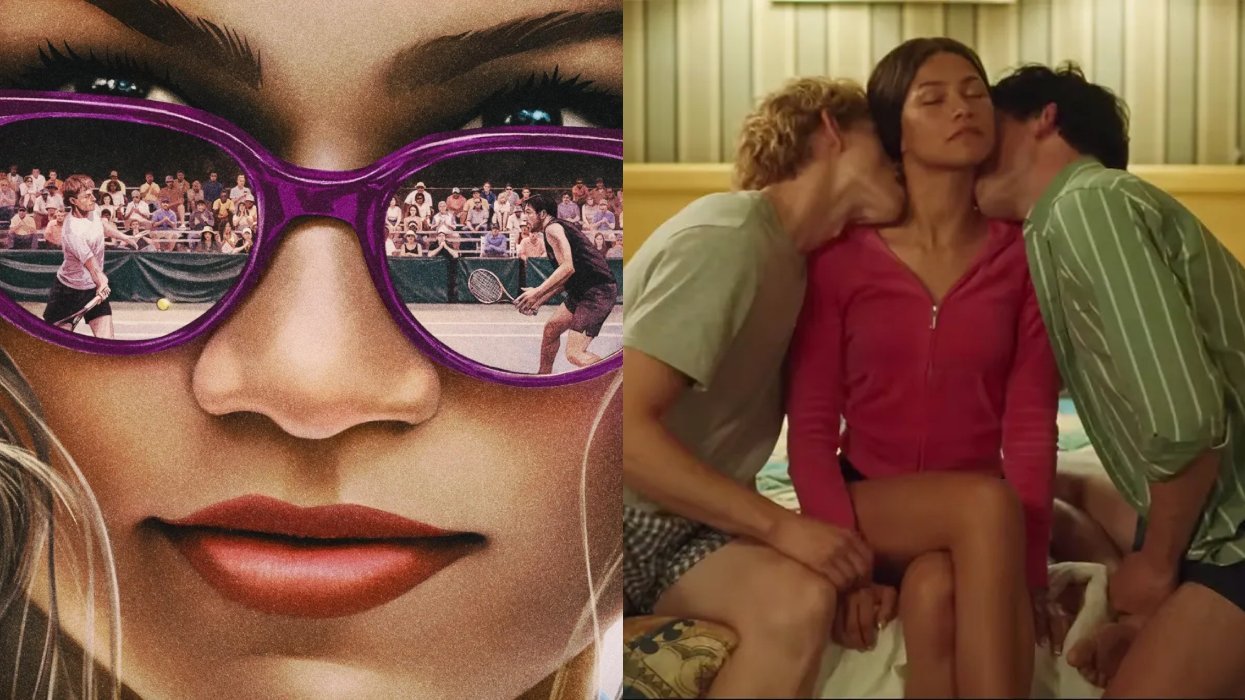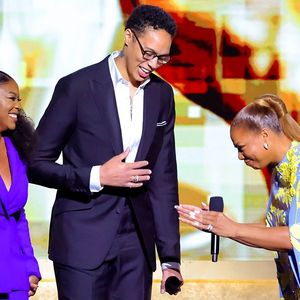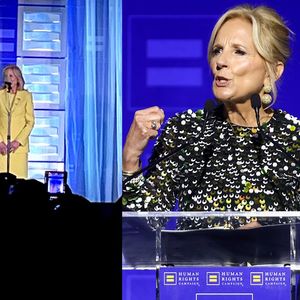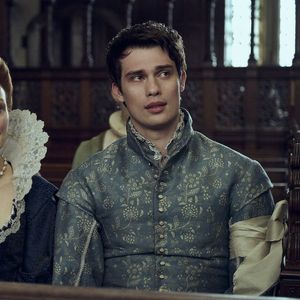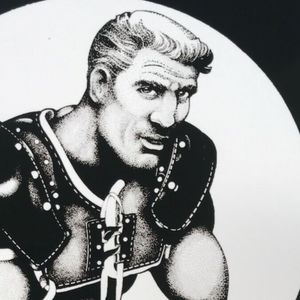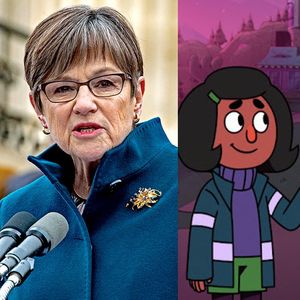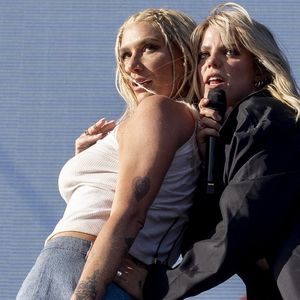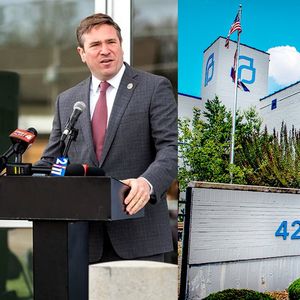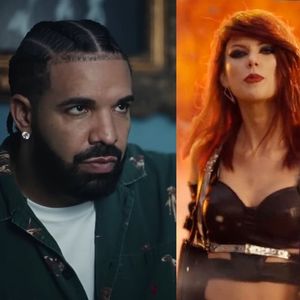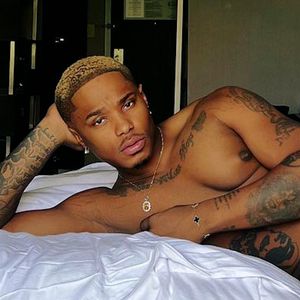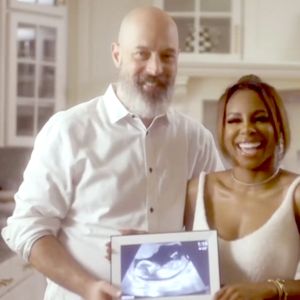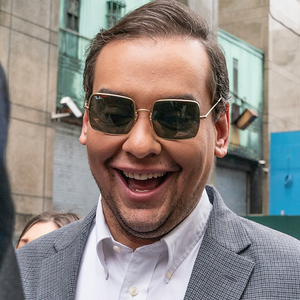It was a blustery Saturday, the day before episode 2 of Looking would air, but it seemed only fitting to drink Blue Bottle Coffee -- hailing from San Francisco! -- while chatting with Raul Castillo about his role on HBO's new series. Castillo plays Richie, Patrick's (Jonathan Groff) current love interest--and one of the most intriguing characters we're just getting to know.
A quick refresher: In the first episode the two guys shared a sexy encounter on public transportation. Flirty grins and a fancy business card were exchanged, and Patrick met up with Richie later in the evening. In last night's epsiode, the duo turned up the heat, grabbing drinks and sucking face at Patrick's place. But when Patrick made a certain distasteful comment, Richie bailed. Poor Patrick was then left alone with the best date-gone-wrong therapy: mama's mac and cheese.
Richie's raising the stakes in Looking, and Castillo is bringing confidence, wit, and a damn charming smile to the screen.
OUT: Before Looking, you worked mostly in theater and in small, independent films. Now you're on an HBO show -- this is huge! How's seeing yourself on television?
Raul Castillo: It's very new and this is just the first couple of weeks, so I feel like it's going to come in stages, and I'm going to see it in different ways. But so far, nothing crazy has happened. But it's great that I get to share my work with family in Texas and all my friends, with everyone who's been supportive of me, even from a distance. Now they get to see me on this kind of platform and everyone is really encouraging and excited about the show.
Weekend is one of my favorite movies of all time. Not because it's gay-friendly, but because Andrew Haigh is a brilliant writer and director and its premise is very simple even though its content is so complex. How was it working with Andrew on Looking?
I'll take bullets for Andrew. There's a quality in the kind of person he is that makes you trust him. I had faith that we had a very capable and inspired leader, that he's someone who's going to guide us always in the right direction. Sometimes we would do two or three takes, and once he was satisfied, we would move on. When he's happy, I trust we've gotten what we need for the story. I always felt like I was in good hands. And I think a lot had to do with watching Weekend before shooting. They advised us to watch the movie before we auditioned. Once I saw the film -- I loved it and thought it was wonderfully told -- I wanted to work with whoever made it. Andrew was obviously such a great storyteller and he cares for his characters. They're beautifully drawn and have so many levels to them.
I read that Andrew gave the actors in Weekend flexibility in how they interpreted, and even improvised, the script. Did he have a similar approach to Looking, or was it more structured?
The scripts for Looking were so good that we didn't need to improvise a lot. But there was certainly a looseness in the way that we shot. A lot of times, he would have us improvise into and out of the scenes. So there was a definite fluidity. They would just keep the cameras rolling at all times. There was an improvisational feel, even if it wasn't entirely improvised. There were moments of spontaneity, and those were encouraged.
I'm sure this spontentity is what helps make the show feel real, like little snippets of daily life.
Yeah!
Andrew also pressed how important it was that Looking be shot in San Francisco. Do you think it's important the show was filmed in San Francisco? Do you have any personal attachments there?
My family loves the city. We visited it eight or 10 years ago. I was with my parents and my sister. My sister was there for work and my parents went to go spend some time with her. And my little sister spoiled me. She's an accountant and not in the arts, so she flew me out. But because I was there on their dime, I took it upon myself to be the tour guide. So I got the books, and went online and did research; I talked to friends who had gone to Berkeley. We ate at all these great restaurants. The food's incredible there. So I had that kind of attachment to it.
I also have a lot of friends from the Bay area, so I tend to gravitate to people from there. I was part of Lorimer, a short that Michael Lannan -- Looking's creator -- filmed. It was a prototype for Looking. That was set in Brooklyn. We were thinking Richie's character would be Puerto Rican at the time. But San Francisco is more of a Mexican town, so Richie's character changed. Either way, the character had so much potential, whether he was Puerto Rican in New York or Mexican in San Francisco. I think the way Looking explores Latinos in the show is really smart and hasn't been seen before.
Diversity in television is a hot topic. Like you just mentioned, Richie is pinned early on as a Latino character. Then Patrick makes certain presumptions that affect their relationship. How do you think Looking is approaching ethnic representation?
So effortlessly. It doesn't feel forced, just in the way the story doesn't feel forced. It makes sense. It's similar to how the sex on the show is very story-driven. I think that's the case, too, with these kind of nuances we're talking about. It's not just for the sake of diversity, it's to move the story forward.
Even the way Patrick and Richie meet on the bus. One of the reasons I'm proud to be a New York actor is that I get to jump on the train and be around so many people. It's not like big cities in the South where there's a lot of segregation. There's no separation. I love how in the first episode these two characters meet in that way. In L.A., public transportation feels like it's just for the economically marginalized. But in San Francisco and in New York, you feel like you see people from all walks of life on public transportation. In the same way, the show deals with sexuality, it deals with race. It feels natural. The characters talk about their differences, but the show isn't about their differences. Their differences are on the table, but it's more about what they share, what they have in common.
I grew up in south Texas in a place that's 90-percent Mexican-American. My parents are from Mexico. But I always felt very American. When I would go to Mexico, my brother and sister and I would be the gringos. Then I went out to school in Boston and felt so un-American. Everyone always asked, "Where are you from?" I said, "Texas." And then they said, "No, where are you from from?" Then I understood that this is what most of America is like, and that I grew up sheltered. A lot of the storyline between Patrick and Richie is reminiscent of those years in Boston. Patrick, in a very charming way, is trying to figure Richie out.
You're straight but play a gay guy on Looking. How was that experience? Did you ever doubt taking on a queer role?
I know I said this already, but once I saw Weekend, I wanted to work with Andrew. And I've played gay characters before and never had a problem with it. But I did think about how my parents would react. They're old-school Mexican. But for being old-school and traditional, they're actually very open-minded. They're so excited about the show, and they're very proud and they have been super supportive of me from day one. They're happy to see me doing what I love and they're relieved that I'm now able to make a living doing it.
You're making it!
Yeah, HBO! But there was a moment when we went to shoot the pilot, where I sat in my hotel room the night before and composed an email to my parents, brother, sister, uncle, and aunt. I wrote them this email and said, "I'm sitting in my hotel room in San Francisco. I'm here to shoot a pilot for HBO. The way that pilots work is that networks shoot a pilot and if they like it, they'll green light it and order a whole series. The show is about gay men living in San Francisco and, in it, I'm going to be playing a gay man. I've played gay men before and never had a problem with it, but I want you guys to know, so you're ready for it. If you have any questions or want to talk about it, let me know. You guys have always supported be and I hope you support me now." And they wrote back such loving messages!
This whole experience has opened up channels of communication. A lot of times people are so old-school and traditional that they don't know how to talk about this stuff. We have to provide the language for them. We have to make them feel comfortable. Because often times they don't give a shit. Yeah, they've been told their whole lives that being gay is wrong, but in their hearts, they don't really feel that way. I know that this is not the main point of Looking, but I hope the show does for other people what it did for me and my family, which is start a conversation. My family's so excited. It's awesome.
That's really good to hear. Most gay men and women come out to their families, but this sounds like a kind of coming out, as well. It's great that you're sharing this side of the experience. I think it's rare to hear about the very personal effects of acting.
Exactly! And my dad just bought an HBO subscription.
Love it. In OUT's February cover story, Christopher Glazek wrote about Looking, and one line's always stuck with me: "Patrick's fumbling is not simply endearing -- it's what makes him an object of desire." Do you think that's true? How does Richie balance Patrick?
That's a great point. I think honesty is sexy. Patrick's awkwardness is charming, and he becomes more appealing to Richie once he starts opening up. I think that's how relationships are. You meet each other and there are so many walls built up based on personal histories, but it's all about removing those walls. I think the most solid relationships are the ones where we're able to peel away layers and really get to the core. Sometimes certain people allow us to pull these layers off and those are the people we fall in love with. In real life, Jonathan isn't as awkward as Patrick. But he does such a great job of riding that fine line between awkwardness and charm.
I also think you and Jonathan have a strong, non-verbal chemistry on screen. That scene on the bus is so well-choreographed. You switch seats, turn your head, reach for the business card in Patrick's front pocket. Was the chemistry with Jonathan there from the beginning?
It was totally natural. I flew in to shoot the pilot, and I met up with Andrew and Michael and we went and got coffee, and that night everyone was meeting up for karaoke. I felt like the "Patrick" that day. I was kind of awkward; I didn't know anyone. I just knew Michael, and I was just meeting Andrew. Jonathan made me feel at ease from the get-go. He has such a big heart. He's a very intuitive person and a very intuitive actor. I never sung karaoke in my life, and the first time I was singing karaoke was in front of a Broadway star.
That requires alcohol...
Oh yeah, but no amount of alcohol could have prepared me for that! But then we had one day to shoot both of our scenes. Acting -- especially when you're getting to know someone -- is a dance where you feel out each other's energy. It's this constant give and take. He was so giving, and I think I'm a fairly receptive actor. So we hit it off, just as two people.
It's definitely apparent on screen. And Richie also has a lot of swag and confidence. Do you think you'd be friends with him in real life?
Yeah, absolutely. He's a lot more assured than me in a lot of ways. But he's a bad ass. He has a lot of license. He's not just there to move Patrick's story line. He has his own desires, his own needs. There aren't a lot of Latino characters like him on television, and I feel so lucky to take him on. He's so complex, sexy, confident.
And he's looking for something on his own.
Yes, and he knows what he wants.
A lot of supporting characters don't have those strong wants. They're just there to serve the protagonist's purpose.
Exactly. And I'd never, in a million years, go up to a stranger on a bus.
Oh, no way.
But he's the guy who does. He just goes for it. He takes risks.
Looking has been continually coined "the gay Girls." I'm always a little irked by these kinds of comparisons because I think they skimp out on real analysis and a genuine understanding. But let's find some: When people say "Looking is the gay Girls," what do you think they mean?
I think it's an easy way to get people's attention. And if that's going to get people to watch the show, it's exciting. I love Girls. I think it's really funny. But I think they're two totally different shows. I love that they're playing back-to-back because I think they compliment one another. They both write visually, though the aesthetics are different. At first the comparison frustrated me, but then I started to appreciate it. And Andrew's voice is just so imprinted on Looking.
Do you think Looking has a universal appeal or is it a show primarily for gay men?
No, I've had a lot of my straight male friends respond enthusiastically. They're into the characters, the story lines. Same with my friends back home and all over -- a lot of my female friends, too. So no, I don't think that at all. I hope we have a huge gay audience and a huge straight audience. I hope that straight audiences are enlightened and exposed, because for me, as an actor, it's interesting to see how other people experience the world. And I hope that other people get to experience what these three guys experience. It's just three guys, so by no means does it represent the whole gay community. But this little microcosm, I hope, will help shed light. People will be entertained and moved. I don't think there's a politicial agenda behind the show, but I want it to start a positive, cultural dialogue.
Catch Looking at 10:30pm, Sundays, on HBO. Don't have an HBO subcription? The show's on YouTube!
